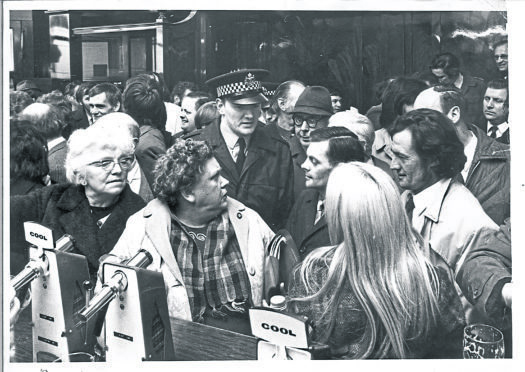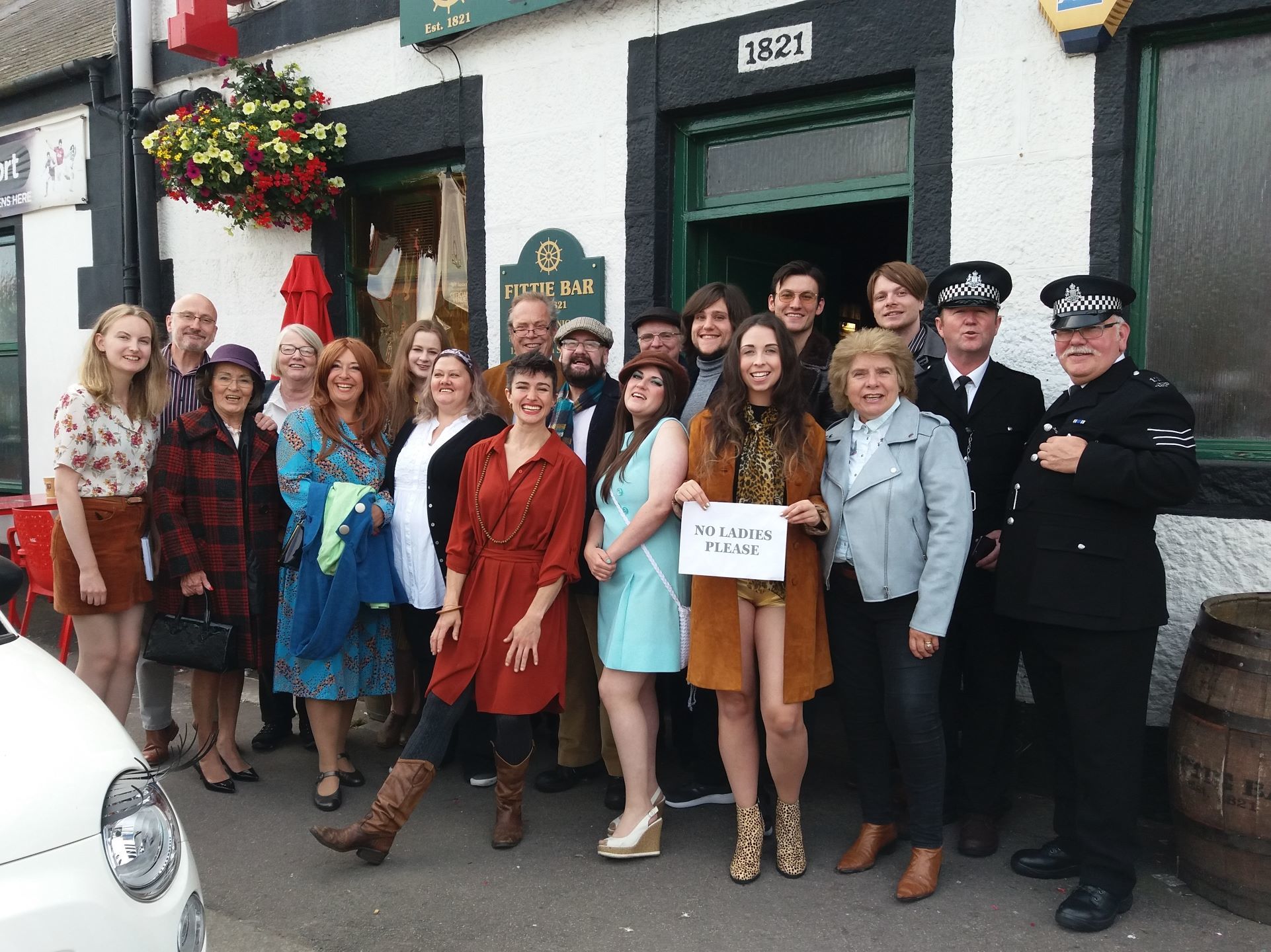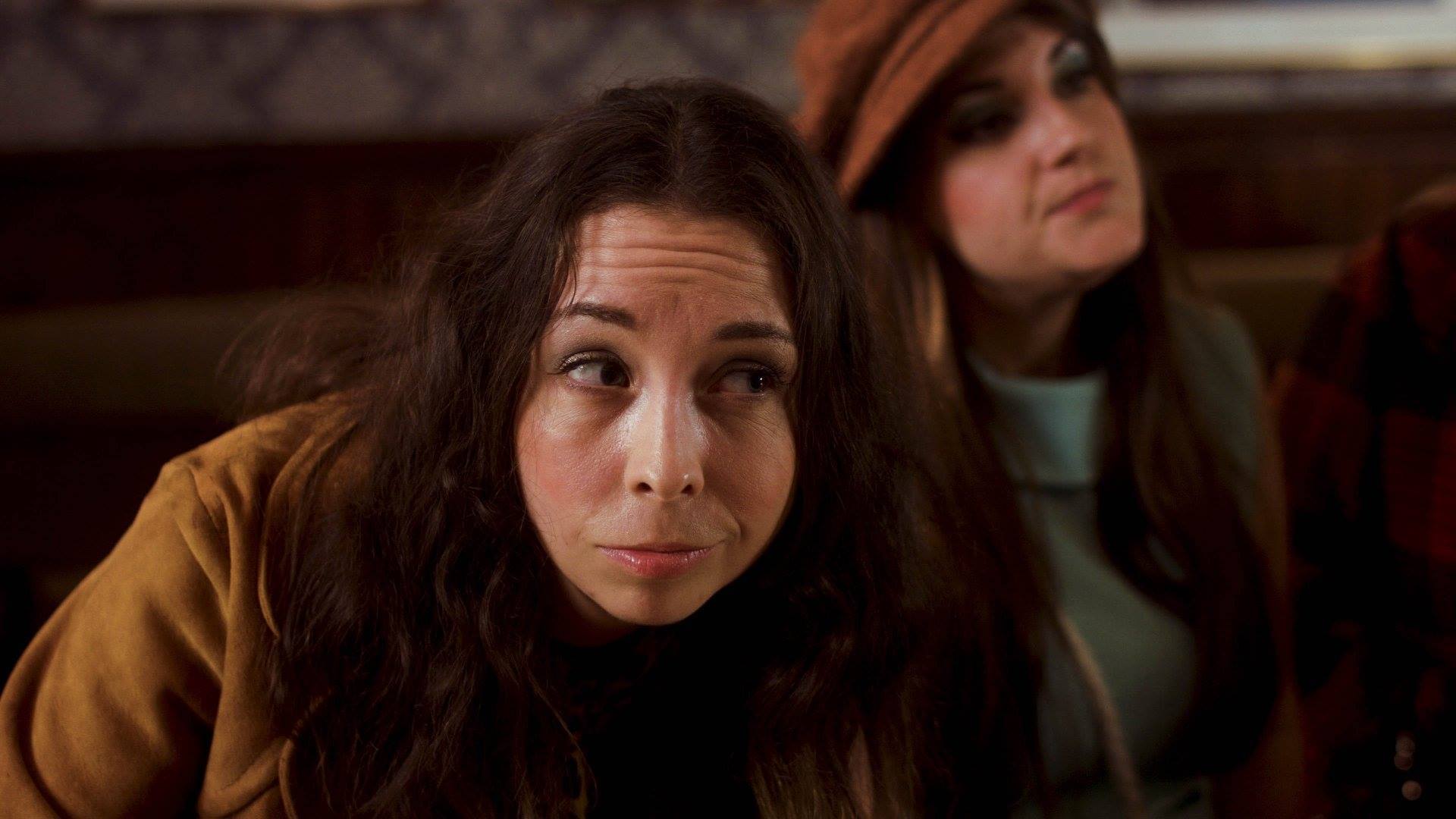It is easy enough for a woman to order a drink in any Aberdeen pub these days, but 45 years ago it was a very different story
In 1925 The Grill, on the city’s Union Street, was purchased by John Innes who hung a sign on the window stating ‘No Ladies Please’.
The discriminatory policy stayed firmly in place for 50 years, despite an uninvited visit to The Grill in 1973 by a large number of disgruntled female delegates attending the Scottish Trades Union Congress.
The removal of the ladies who stormed the bar by the police officers of the day made local and national headlines and now the fascinating tale from the city’s history is being elevated to the silver screen.
Inspired by the historic tale, No Ladies Please was filmed in the city using local actors and focusses on the day some determined ladies stormed one of Aberdeen’s most iconic bars.
A Crowdfunding campaign is being used to push the production over its final hurdle as, while Aberdeen City Council creative funding covered half of the budget, it is looking to cover the remainder.
The public support would enable local actors to be paid and the finished film to be professionally edited and would also provide the team with the funds to promote the film by entering it into festivals.
Yvonne Heald directed the film, with Haworth Hodgkinson as assistant director and Rory Holwerda taking the role of director of photography.
Dr Fiona-Jane Brown of the Bon Accord Civic Heritage Association, who has led the project, said: “No Ladies Please tells the story of women who went into a bar they were refused access to.
“The subject is still relevant today with the number of sexual abuse cases and the lack of equal pay women still face.
“It was a hectic filming schedule, we had just three days to create the film, but the actors and crew were fantastic – and it all went seamlessly.
“The next step is getting funding to hire a professional to edit and colour grade the film, before we have our premier – hopefully before the end of the year to keep in with the 100 years anniversary of women’s suffrage.”
Standing in for The Grill during filming was the Fittie Bar, which was transformed by designers to look as authentically seventies as possible.
Costume items were provided by organisations such as Peapod and the Closet, and seventies décor, such as signage, bottles and cigarette labels, were all specially designed for the film.
No Ladies Please was made in collaboration with Crow House Projects, a community interest company focused on building a filmmaking network in the north-east of Scotland.
Nicci Thompson, executive producer, said: “The story is exactly the type of thing Crow House Projects likes to work on as it is a classic north-east tale and the film actively engages with the community.
“We thought it was a really good community project and we are thrilled to be a part of it.”
In 1975 women were finally served in The Grill, with the passing of the Sex Discrimination Act. A female bathroom was finally built at the bar in 1998.
To find out more and donate to the “No Ladies Please” project here.
The Grill in the 21st Century
Today, the Grill is vastly different to its 1950s counterpart.
The pub has become a firm favourite in the hearts of Aberdeen locals due to its convenient location in the centre of Union Street.
Graham Watson, owner of the Grill, said: “Our aim has always been to welcome anyone in The Grill, no matter your age or interests.
“We’re not a whisky bar, but a bar that sells whisky and our favourite sound is the gentle hum of conversation.
“Increasingly as the generations move on, less people remember the old-days and some are surprised to discover that there were several men-only establishments around in Aberdeen.”
In the last few years, the pub’s team has scooped the “The Friendliest Pub” award at the Aberdeen City and Aberdeenshire Tourism Awards and was also named World Whisky Bar of the Year by Whisky Magazine.
Mr Watson, who has worked at the Grill since 1974, helped turn the pub’s focus to whisky in the late nineties and now there are more than 500 malts on offer at the pub.
While attitudes may have changed, the inside of the drinking venue is much the same as when women stormed the pub and demanded drinks decades ago.
Mr Watson said: “The history of the pub is vitally important as it is a major reason people visit.
“By maintaining the fabric of the interior, as it was when it was refurbished in 1926, customers feel a real connection to the place, whether it is five weeks or 20 years since their last visit.”


